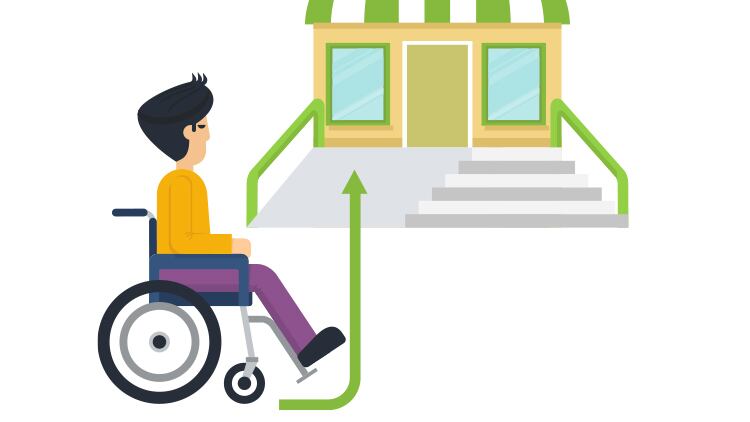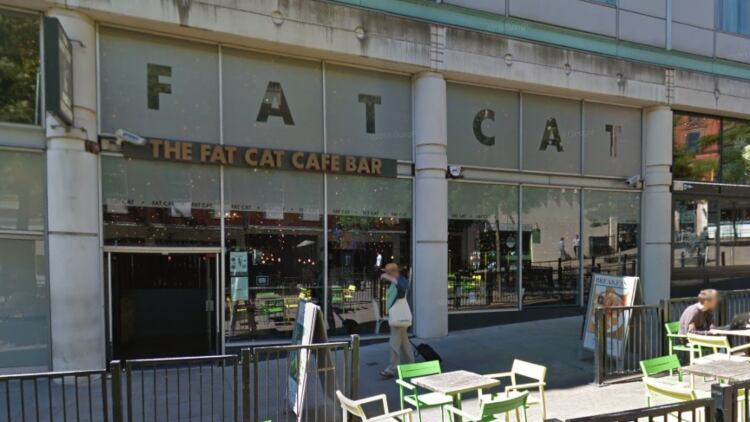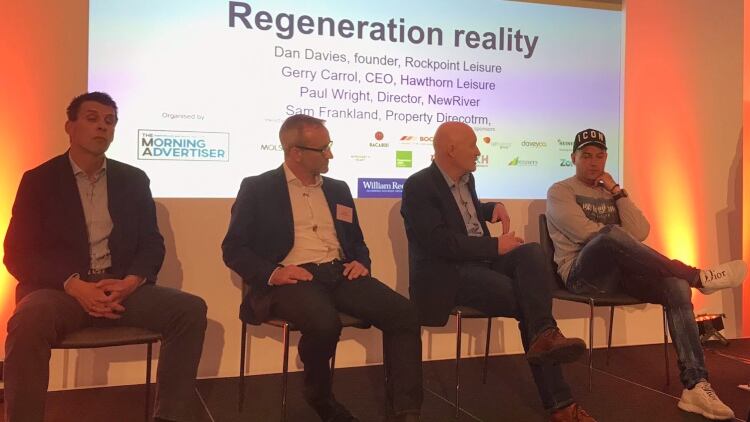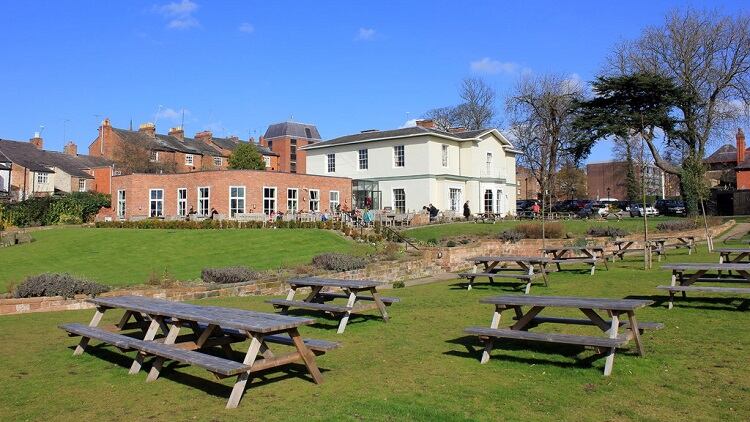According to Fiona Jarvis, founder of Blue Badge Style – which reviews venues and rates them on their accessibility, facilities and style – the household spend for people with disabilities is worth £249bn a year. Yet some pubs, bars and restaurants may be losing out on a slice of this by not making their venues accessible.
As reported by The Morning Advertiser (MA), a recent survey by access charity Euan’s Guide found that pubs and bars are the least accessible venues, with more than a third of respondents (38%) claiming that pubs had poor access, with 86% stating that they’d found disabled access information on a venue’s website to be misleading.
With alleged shortcomings and the size of household spend by people with disabilities in mind, Jarvis explains how to find out more information and why pubs should work harder to make their sites accessible:
MA: What are the legal requirements for pubs to provide for disabled customers?
Fiona Jarvis (FJ): If they are new builds then they have to make provisions for disabled customers, but because the building stock in the UK is so old, there’s an exemption clause for any old building where it’s not possible to make alterations with a reasonable amount of money.
MA: What are the main challenges disabled customers face in accessing pubs or bars?
FJ: The two main areas you need to cover are that you need to be able to get in easily and you need to have a fully accessible disabled toilet. Lowered parts of bars are a good one as well because if you’re in a wheelchair trying to get served at a bar is a nightmare.
MA: What are the main solutions pub operators can work towards or look at to solve these issues?
FJ: If I think about a pub near me, they have two narrow swing doors and what would be good would be if they made it into a single door, which would then be wide enough for me to get through without having to open two doors. It’s got a huge step that is between be six and nine inches high – most electric wheelchairs won’t go over a three-inch step, so someone’s got to lift me over that. You could either put in a portable ramp or get one built – they’re not that expensive, your local carpenter can build a ramp, it’s not that difficult.
With regards to toilets, there are what they call ‘doc m’ packs that you can buy – ‘document m’ is the building regulations for accessible toilets. They aren’t that expensive, they’re maybe £300. That will include all the bars you need to put in and the emergency cord.
MA: What are the potential cost implications of alterations?
FJ: Again, with regards to lowering a bar, how much does it cost for someone to get a carpenter to cut into a bar and put a lower surface? Not that much. Then to put in a disabled toilet, people are being quoted £10,000 for a disabled loo, which is totally untrue. I’ve put in a fully accessible bathroom in my home and it cost £5,000 – that’s a walk-in shower and everything. You can’t tell me that putting in an accessible toilet in a pub is £10,000. That seems to be the figure that’s thrown out all the time and it’s just not true.
With portable ramps, it depends how long the ramp is and how steep the step is, but they are not that expensive. They are less than £500... put it that way. The other thing is staff need to be trained in how to handle disabled people but I think companies are doing that now and to be honest handling someone who’s disabled is just common sense – if people want to be helped, they’ll say, if they don’t they’ll say ‘no thank you’.
MA: From an aesthetic point of view, can operators make changes to their sites without them being an eyesore?
FJ: A ramp is a ramp, there’s nothing ugly about it and there’s nothing aesthetic about it. But a disabled toilet really doesn’t have to be plain white and dirty. The number of disabled toilets I’ve been to in pubs that are filthy or used for storing high chairs and stuff like that, it’s just not right. No one else has to go to the loo and have to ask for things to be moved out of their toilet, why should I have to?
In terms of aesthetics, use the same tiles you would use in ordinary bathrooms, use the same colour scheme, same decor, it’s as simple as that. It’s an afterthought usually.
MA: What advice would you give a pub operator looking to improve their site’s accessibility?
FJ: Number one would be around access – making sure things aren’t in the way. Not everyone is in a wheelchair so it’s not all about wheelchair accessibility, but wheelchair accessibility tends to be good for other people who have access issues. It doesn’t have to be a permanent ramp, it could be a portable one, but staff need to know where it is.
The number of times I’ve been to a place and said ‘you’ve got a portable ramp, I rang up and asked’ and have been told ‘we don’t know where we keep it’. What’s the point of having one and not telling your staff. I’ve been to a couple of places and been told they’ve got an induction loop for people hard of hearing and the staff haven’t know. Plenty of people put things in but the staff don’t know.
MA: What impact could improved accessibility have on a pub’s business? Can it add to the bottom line?
FJ: Yes. For example, there are two pubs near me, one I can get in with absolutely no problem, it’s completely flat, and another that is over cobblestones, round the back, over a big step and through two big doors. Guess which one I went to? I went to the other pub and spent my £100 there. That’s just one instance and it wasn’t just me, it was the four other people who were with me, they’ll say ‘let’s go to that pub with you because the other pub is too difficult to get into’.
The figures are that the household spend for people with disabilities is worth £249bn a year. Why would you ignore that market? It’s not just the household, it’s their friends that go out with them.
I’ve been to restaurants where there’s been 10 of us, I’ve rung up to find out exactly what the access is like, got there and found I can’t get in without being carried and it’s been a disaster.
Not only will I never go there again, my nine other friends will never go there again – that’s thousands of pounds.




